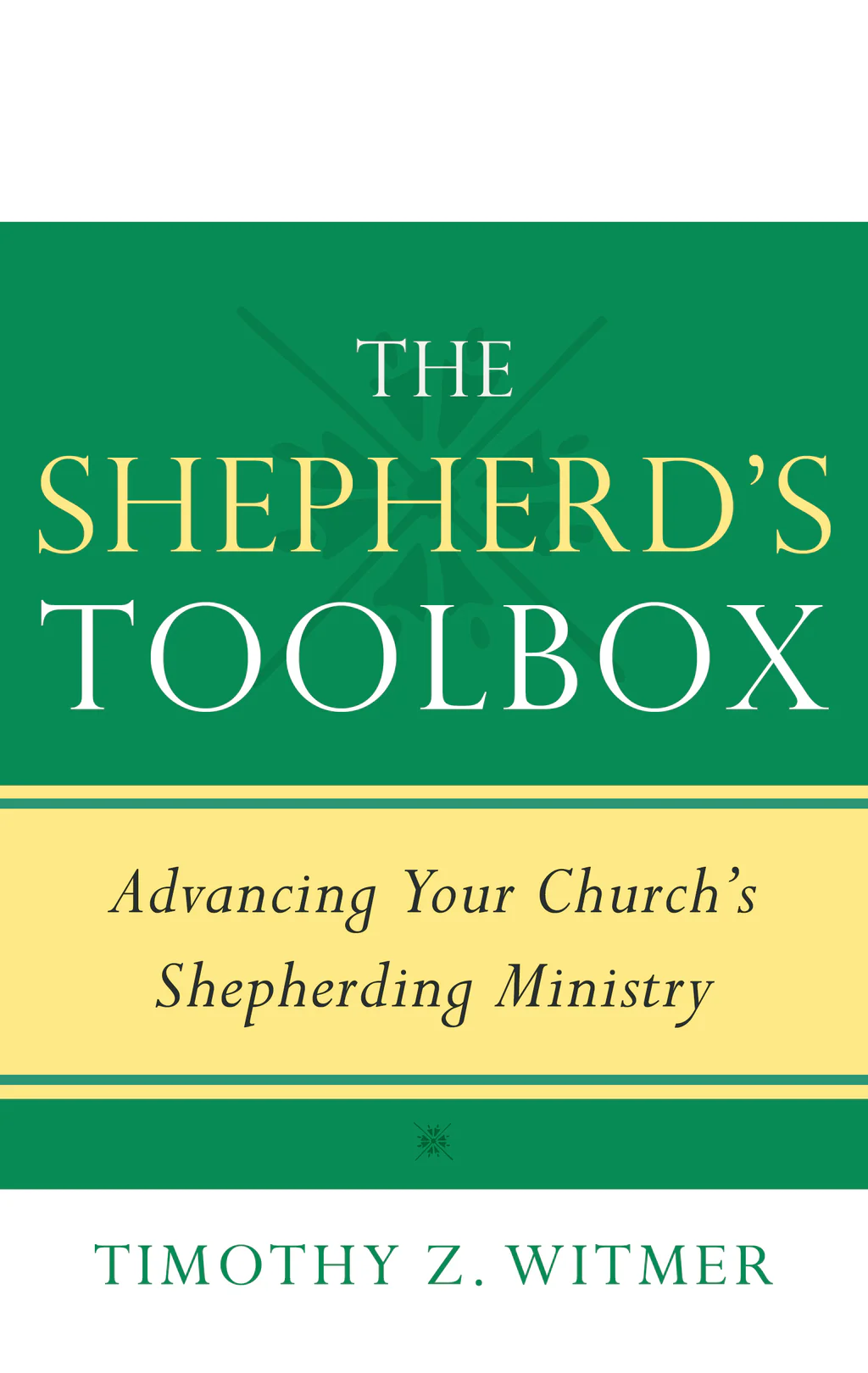
Timothy Z. Witmer, Editor
Reviewed by: Jonathan Landry Cruse
The Shepherd’s Toolbox: Advancing Your Church’s Shepherding Ministry, edited by Timothy Z. Witmer. P&R, 2023. Paperback, 168 pages, $17.09. Reviewed by Jonathan Landry Cruse.
Thirteen years after the release of his best-selling The Shepherd Leader, retired professor and pastor Timothy Z. Witmer has blessed the church again with a follow-up volume entitled The Shepherd’s Toolbox: Advancing Your Church’s Shepherding Ministry. This time around, Witmer has assembled a team of pastors, elders, and other ministry leaders to each contribute a chapter that addresses various aspects of implementing the principles in The Shepherd Leader. The result is a helpful resource guide, and ministers who feel that their current efforts to “shepherd the flock of God” are falling short would do well to read it carefully.
I appreciated the book’s concern not only for the care that each member should receive, but also for the care that each shepherd should receive. Many elders know the experience of a session that is stretched too thin or weighed down by the burdens of the congregation. One elder quoted in the book expressed the stress of dealing adequately with the various families in his charge: “Am I to care for my whole flock [continuous care] or to care for the one member in trouble [crisis care]?” (56). Without intentional and proactive measures, elders can become burned out or disillusioned to the idea of doing ministry.
Another recurring theme that I took note of in the book was the call to utilize technology to benefit the shepherding ministry within a congregation (see especially chapter 5). One contributor provided a list of church management systems (e.g., software, apps) that could be implemented to streamline member care and store and share information amongst the leadership of the church. Even something free (like Google Docs) could be a way of easily sharing and recording information for pastors and sessions to ensure every member is kept track of and every need met. This is an example of how immensely practical the book is, as it gets into the nitty-gritty of things like administration, attendance, and spreadsheets. Furthermore, each chapter is followed by a “user guide,” offering questions for elders to discuss together and homework for them to try out in their local context.
The book addresses how to implement an effective shepherding model in a variety of contexts: women’s ministries, small groups, and church plants. However, most of the chapters were written by leaders in churches of more than a thousand members. While some of the struggles that elders face are universal, a wider readership would have benefited if there was included an entire chapter devoted to effective shepherding in a smaller church context. For many pastors in the OPC, the stresses faced by the church planter (e.g., not having enough volunteers for Sunday ministries) will hit closer to home than those faced by the megachurch pastor!
Finally, I want to note that the opening chapter by Dr. Witmer, “Motivation for Shepherds,” is worth the price of the book. Walking us through Jesus’s interactions with Peter, particularly in John 21, Witmer draws out rich truths that remind us that our love for the sheep must come after a love for the Shepherd: “The strength to persevere in your calling is found in the renewal of your first love for Christ” (12). Some of us pastors and elders may need to revamp our shepherding ministry; some of us may simply need to return to the Shepherd. In either case, this book is helpful.
July 27, 2025
July 20, 2025
July 13, 2025
Proclaiming Christ in a Pluralistic Age
July 06, 2025
June 29, 2025
June 22, 2025
June 15, 2025
© 2025 The Orthodox Presbyterian Church